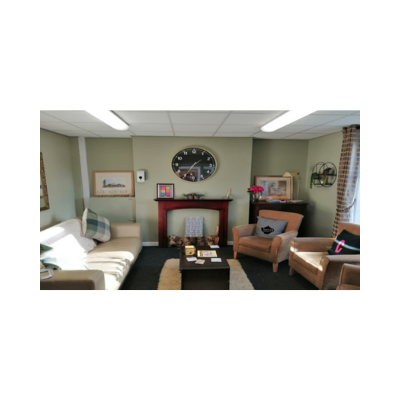Mental Health Awareness Week – speaker interview with Daisy Silva

With millions in England facing a ‘second pandemic’ of mental health issues yet specialist services becoming totally overwhelmed, how can we take a different approach to supporting people in their own communities?
Daisy Silva from Rochdale Borough Council is speaking on The Fringe at Housing 2022 about how a welcoming “public living room” in Central Rochdale is helping to overcome feelings of isolation through social support. Read more about the initiative and its impact in this short interview!
Why is it so important for housing providers and local authorities to support the mental health of their communities?
Supporting resident’s mental health is important because I believe we are all connected to one another. Would I be truly happy if my neighbour is struggling? Think about it, if we are mentally healthy, we are more inclined to seek help to overcome barriers such as debt, unemployment, health problems and unlikely to be involved in anti-social activities.
Residents with a good level of emotional intelligence and resilience contribute to the wider economic community. By recycling, giving honest and productive feedback about local services so they can be improved, it is more likely residents will take an interest in local community events.
Residents with poor mental health are more likely to take part in anti-social behaviour, neglect their property, be out of work, be involved in crime, be in and out of the hospital and rely on housing and other state benefits.
In my view, it is common sense to support the mental health of our community, but common sense is not always common practice. We need policymakers, funders and leaders to see mental health as a real threat to our economy and wellbeing.
Why did you decide to set up a Public Living Room? What is it and what were you hoping to achieve?
Central Rochdale is going through a regeneration process with old buildings being demolished and new ones appearing. There is a sense of chaos that comes with either building work, a lot of noise, dust, or the upheaval of having to move to a new area. Some residents are feeling isolated as their neighbours have moved to different areas, some are feeling let down by the council and housing association, while others are struggling to accept the changes, or all those things combined.
I wanted to set up a safe, warm, and welcoming place where people could simply walk in and have a hot drink and chat. The public living room was a great fit. We had this undescriptive room at our local community centre which was a perfect space to be turned into a welcoming living room, see picture below. I got in touch with Camerados who support me with ideas, resources and encouragement. They even came to the launch on the 19 January 2022.
What has been the impact of your work on local communities?
The local community are slowly getting to know about the public living room (PLR). People attending the community centre love the fact that they can sit down and have a drink while they are waiting to be seen by services. The housing association are also using the room out of the public living room hours to meet up with tenants, which is great for promoting the space.
We realised that we need to create events to bring awareness for the space. For example, we had the International Women’s Day celebration at the PLR. Many women attended, which was great. I would say that we are doing well, residents are getting to know the PLR and those who attend the centre regularly like to sit there and do nothing, just relax!
What learning will you be sharing at Housing 2022 to help others adopt a similar approach?
- Think where you are located. We are on a busy main road with little footfall. The community centre was very quiet before we turned up so we need to work hard to make people aware of us.
- Think about how you are going to promote and what services can help you. We have done loads of events and engagement activities to bring people into the centre. Promoting! Promoting!
- Think about how housing officers can help with the promotion of the PLR. In our case, the housing officers start to bring the residents in for meetings outside of PLR opening time. So they have a warm, safe place to chat with their tenant.
- Community focus groups organised by the housing association are now attending the centre and want to be in the PLR. So make it possible for other services to use the PLR but you need to shield the PLR hours. Servicers are not allowed to do engagement work in the PLR time slot. You need to be very protective of the time slot so you can keep within Camerados’ values.
The New Pioneers project is funded by Rochdale Borough Housing, Rochdale Borough Council and GMCA via community reward funding.
Daisy Silva is the New Pioneer project manager at Rochdale Borough Council and is speaking on 29 June on “Mental health, resilience and the importance of human connection” alongside:
- Paul Bridge, chief executive, Civitas and supporter of The Clive Smith Foundation
- Jayne Adamson MBE, volunteer suicide lead and tenancy sustainment manager, Believe Housing
The discussion is chaired by Alison Inman, independent board member at Tpas.
For more content on The Fringe and health and wellbeing sessions, view the full programme here.
Register for free* now to benefit from all this expert insight and best practice case studies.
*Visitor passes are free to housing associations, local authorities, public sector, housebuilders, master developers, funders, architects, planners and BTR landlords, student accommodation, retirement living and extra-care providers. Fees will apply to other commercial organisations.
© HOUSING - OCEAN MEDIA GROUP LIMITED, Suite 6.04, Exchange Tower, 6th Floor 1 Harbour Exchange Square, LONDON E14 9GE | TEL:020 7772 8407